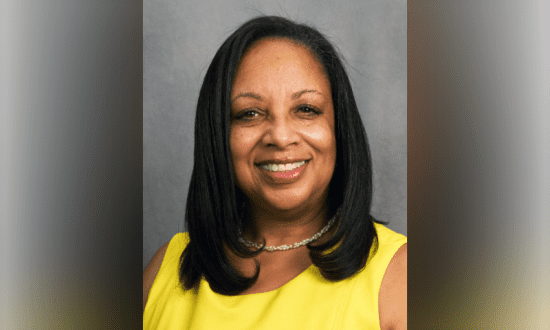Dr. Arletha McSwain, a distinguished leader in online education, earned her PhD from the University of Missouri-Columbia, her Masters in Education, and her Bachelors in Education from Lincoln University-Missouri. Her extensive experience in launching online programs that comply with national and international accrediting agencies is a testament to her dedication. She is a strong advocate and voice for HBCUs, especially in the areas of access to online education, a role that showcases her leadership and commitment. She is also a member of the Quality Matters Changing Landscape of Online Education (CHLOE) executive board, Phi Delta Kappa, and Kappa Delta Pi. Over the years, Dr. McSwain has secured over $4.8 million in federal funding for diversity, equity, inclusion, and accessibility. Her recognition with the prestigious Education 2.0 Outstanding Leadership Award in 2022 and her ranking by Women We Admire as one of the Top 25 Women Chief Learning Officers of 2024 is a source of pride. She is the principal investigator for the research project Establishing Compelling Evidence for OER as a Completion and Learning Strategy for Higher Education.
Recently, in an exclusive interview with Higher Education Digest, Dr McSwain shared her insights on the changes that have taken place in the higher education sector over the last 5 years, personal sources of inspiration, the secret mantra behind her success, her biggest stress relievers, future plans, pearls of wisdom, and much more. The following excerpts are taken from the interview.
Hi Dr McSwain. You have numerous years of experience in the field of education and academics. How do you see the changes which have taken place in the higher education sector over the last 5 years?
The descriptors that immediately come to mind are uncertain but resilient. Despite the challenges, our colleges and institutions have shown remarkable resilience, adapting to the changing landscape. The COVID-19 pandemic intensified these challenges, but it also brought out the best in us, making us more flexible, adaptive, creative, and accommodating to the current landscape. This resilience gives us hope and a sense of optimism for the future of higher education.
What do you love the most about your current role?
Absolutely everything. I love our students, their passion for learning, and their growth potential. I am privileged to lead a dedicated, dynamic, talented Access and Enrollment Management Team. Their commitment and hard work inspire me every day. I appreciate the collaboration among faculty, staff, and administrators, which makes our job even more rewarding. Marc Anthony was on point when he said, “If you do what you love, you’ll never work a day in your life.” This joy and passion in my work is what keeps me inspired, motivated, and I hope it can inspire and motivate others.
What are your thoughts on gender equality and inclusion? Do you think there is a gender bias in your industry?
My field of study and research interest has always centered around gender equality and inclusion. Unfortunately, bias can be found everywhere. The politically charged and often misunderstanding of DEI indeed divides us further. It is crucial not to just recognize bias, but to actively work against it. We all are responsible for identifying and acting against bias, which empowers us to be part of the solution. Acknowledging and acting against bias is a responsibility and a source of empowerment for all of us.
Is there a particular person you are grateful for who helped get you to where you are?
That is a tough one because it would not be a specific person. It would be my mother and late father, Dora and Sherman Hayes Jr. They always stressed six things: 1) family first, 2) education, 3) vote, 4) your word is your word, 5) be kind, 6) let your hard work speak for itself.
You were the first African American female to serve as President of USDLA, inducted into the USDLA Hall of Fame, recipient of the 2013 Phenomenal Woman Award, and a 2009 Eminent Scholar. Our readers would love to know the secret mantra behind your success.
It started when my high school counselor told me I was not college material and that I should pick up a trade; that probably was my most memorable experience with gender and racial bias. This experience, while disheartening, fueled my determination to succeed and proved him wrong. It was a turning point in my life that taught me the power of resilience and perseverance.
The meaning of leadership can change from one era to another. How would you define the meaning of leadership today?
My definition of leadership today aligns with your first question: courage in leading a team to be flexible, adaptive, creative, and accommodating to the current landscape of higher education. As a leader, prioritize the mental health needs of your team. Always remember that it is never acceptable to be a micro-manager. Be confident in hiring a team that will be the experts in the room and publicly acknowledge this expertise.
What is your favorite non-academic book and why?
Alexander and the Terrible, Horrible, No Good, Very Bad Day. It makes me laugh when it has been one of those days.
What is your biggest stress reliever?
Hanging out with my 8 and 6 year-old grandbabies helps me keep everything in perspective.
Where do you see yourself in the next 5 years?
I will be 70 years young, so I plan to transition to a more consulting role to assist in preserving the sustainability and rich legacy of HBCUs in distance education.
Do you have any advice for women working in the higher education landscape?
Never take yourself too seriously. Your mental and physical health must always be your priority. Surround yourself with influential mentors. Never forget that jobs come and go, but genuine relationships you cultivate will last a lifetime. Most importantly, when you stop having fun on the job…move on and let it go!




